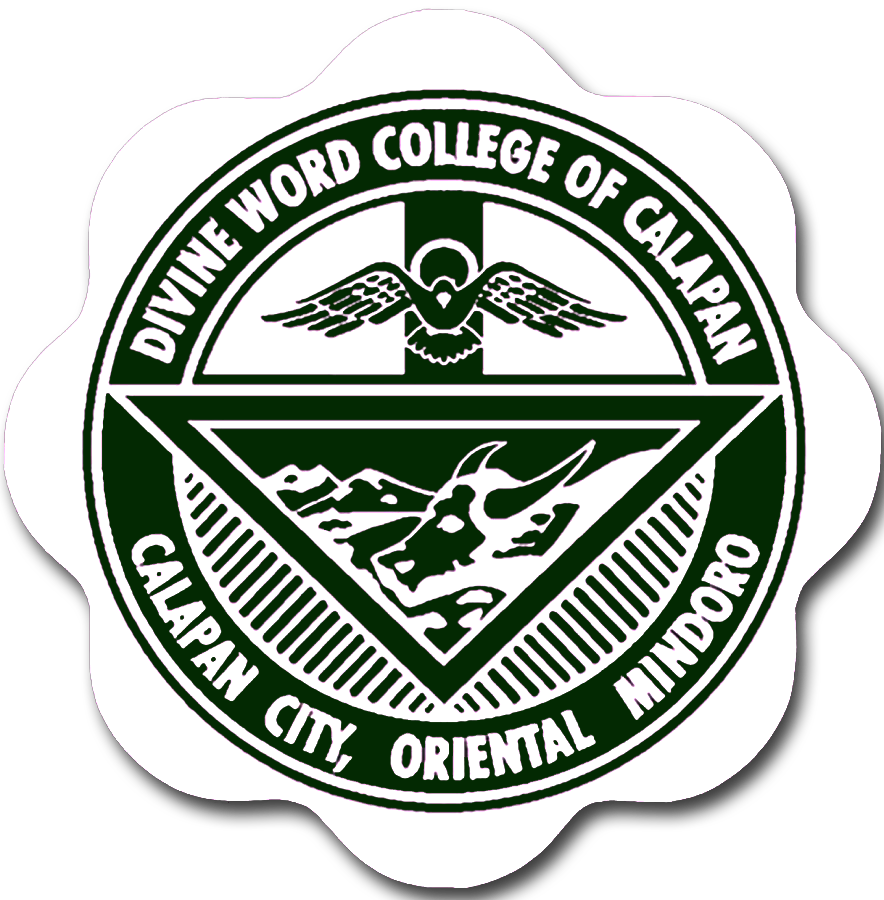Senior High School
- About
- Subject Descriptions
- Grading System
- Organizational Structure
- Faculty & Staff
About DWCC Senior High School
DWCC offers Senior High School programs in Freinademetz Campus and Pinamalayan Campus. Both campuses offers Accounting and Business Management (ABM) and Science, Technology, Engineering and Mathematics (STEM) strands. In Freinademetz campus also offers Technical-Vocational Livelihood (TVL) track.
Subject Descriptions
I. Senior High School Core Curriculum Subjects
Core subjects are subjects that all SHS students will study regardless of their chosen career track or learning strand. You can think of this as similar to the general education (GE) subjects that college students usually take in their first or second year of college.
Subjects that form the core of the SHS curriculum include:
- Oral Communication in Context
The development of listening and speaking skills and strategies for effective communication in various situations.
- Reading and Writing
The development of reading and writing skills as applied to a wide range of materials other than poetry, fiction and drama.
- Komunikasyon at Pananaliksik sa Wika at Kulturang Pilipino
Pag-aaral tungo sa pananaliksik ukol sa kalikasan, katangian, pag-unlad, gamit at paggamit ng Wikang Filipino sa mga sitwasyong komunikatibo at kultural sa lipunang Pilipino.
- Pagbasa at Pagsusuri ng Iba’t-Ibang Teksto Tungo sa Pananaliksik
Pag-aaral sa proseso ng pagbasa at pagsusuri ng iba’t ibang anyo at uri ng teksto na nakatutulong sa pagbuo at pagsulat ng sistematikong pananaliksik.
- 21st Century Literature from the Philippines and the World
This course aims to engage students in appreciation and critical study of 21st Century Literature from the Philippines and the World encompassing their various dimensions, genres, elements, structures, contexts, and traditions.
- Contemporary Philippine Arts from the Regions
The subject covers various contemporary arts practices of the region where the school is located. It aims to provide students with an appreciation of a broad range of styles in the various disciplines with consideration on their elements and principles, and engage them to an integrative approach in studying arts. Through this subject, students will broaden and acquire the necessary creative tools that open opportunities in pursuing their individual career goals and aspirations.
- Media and Information Literacy
The course introduces the learners to basic understanding of media and information as channels of communication and tools for the development of individuals and societies. It also aims to develop students to be creative and critical thinkers as well as responsible users and competent producers of media and information.
- General Mathematics
At the end of the course, the students must know how to solve problems involving rational, exponential and logarithmic functions; to solve business-related problems; and to apply logic to real-life situations.
- Statistics and Probability
At the end of the course, the students must know how to find the mean and variance of a random variable, to apply sampling techniques and distributions, to estimate population mean and proportion, to perform hypothesis testing on population mean and proportion, and to perform correlation and regression analyses on real-life problems.
- Earth and Life Science
This learning area is designed to provide a general background for the understanding of Earth Science and Biology. It presents the history of the Earth through geologic time. It discusses the Earth’s structure, composition, and processes. Issues, concerns, and problems pertaining to natural hazards are also included. It also deals with the basic principles and processes in the study of biology. It covers life processes and interactions at the cellular, organism, population, and ecosystem levels.
- Physical Science
Evolution of our understanding of matter, motion, electricity, magnetism, light, and the universe from ancient times to the present; applications of physics and chemistry concepts in contexts such as atmospheric phenomena, cosmology, astronomy, vision, medical instrumentation, space technology, drugs, sources of energy, pollution and recycling, fitness and health, and cosmetics.
- Introduction to the Philosophy of the Human Person
Understanding the meaning and process of doing philosophy of the human person as an embodied being in the world and the environment as a means towards a holistic understanding of life.
- Physical Education and Health
Offers experiential learning for learners to adopt an active life for fitness and lifelong health. The knowledge, skills and understanding which include physical and health literacy competencies support them in accessing, synthesizing and evaluating information; making informed decisions; enhancing and advocating their own as well as others’ fitness and health.
- Personal Development
This course makes senior high school students aware of the developmental stage that they are in, for them to better understand themselves and the significant people around them as they make important career decisions as adolescents. The course consists of modules, each of which addresses a key concern in personal development. Using the experiential learning approach, each module invites students to explore specific themes in their development. Personal reflections, sharing, and lectures help reveal and articulate relevant concepts, theories, and tools in different areas in psychology.
- Understanding Culture, Society and Politics
This course uses insights from Anthropology, Political Science, and Sociology to develop students’ awareness of cultural, social and political dynamics, and sensitivity to cultural diversity; provide them with an understanding of how culture, human agency, society and politics work; and engage them in the examination of the country’s current human development goals.
- Earth Science (taken instead of Earth and Life Science for those in the STEM Strand)
This learning area is designed to provide a general background for the understanding of the Earth on a planetary scale. It presents the history of the Earth through geologic time. It discusses the Earth’s structure and composition, the processes that occur beneath and on the Earth’s surface, as well as issues, concerns, and problems pertaining to Earth’s resources.
- Disaster Readiness and Risk Reduction (taken instead of Physical Science for those in the STEM Strand)
This course focuses on the application of scientific knowledge and the solution of practical problems in a physical environment. It is designed to bridge the gap between theoretical science and daily living.
II. Senior High School Applied / Contextualized Subjects
Applied / Contextualized subjects are subjects that all SHS students will take; however, contrary to core subjects which are only meant to cover the most basic of topics, applied subjects are designed to focus on the specific applications of certain subjects on the student’s chosen career track or learning strand.
For example, while all career tracks include a Filipino subject, Filipino as used in the field of arts and design and Filipino as used in the field of sports can have slight differences just like how research in the fields of humanities and social sciences is sometimes conducted differently in the fields of science and technology.
Applied subjects that you are going to study as part of the SHS curriculum include:
- English for Academic and Professional Purposes
The development of communication skills in English for academic and professional purposes
- Practical Research 1
This course develops critical thinking and problem-solving skills through qualitative research.
- Practical Research 2
This course develops critical thinking and problem-solving skills through quantitative research.
- Filipino sa Piling Larangan
Pagsulat ng iba’t ibang anyo ng sulating lilinang sa mga kakayahang magpahayag tungo sa mabisa, mapanuri, at masinop na pagsusulat sa piniling larangan.
- Empowerment Technologies
Information and communication technologies as a tool for curating, contextualizing, collaborating, and creating content and experiences for learning in the professional tracks.
- Entrepreneurship
This course deals with the concepts, underlying principles, processes and implementation of a business plan.
The preliminaries of this course include the following:- discussion on the relevance of the course;
- explanation of key concepts of common competencies;
- explanation of core competencies relative to the course;
- and exploration of career opportunities.
- Inquiries, Investigations and Immersions
This culminating activity develops critical thinking and problem solving skills through qualitative and quantitative research.
III. Senior High School Specialized Subjects
Specialized subjects are subjects that are unique to the career track or learning strand that the student chose. These are similar to the major subjects that college students take, although they’re designed to be less complex than their college counterparts.
Specialized subjects that belong to each career track and learning strand are listed below.
ACADEMIC TRACK
Accountancy, Business, and Management (ABM) Strand
- Applied Economics – This course deals with the basic principles of applied economics, and its application to contemporary economic issues facing the Filipino entrepreneur such as prices of commodities, minimum wage, rent, and taxes. It covers an analysis of industries for identification of potential business opportunities. The main output of the course is the preparation of a socioeconomic impact study of a business venture.
- Business Ethics and Social Responsibility – The course deals with the fundamental concepts, principles, and practices of ethical standards in the business environment. It combines the theoretical foundations of setting up business enterprises with the conduct of entrepreneurial activities in the context of one’s accountability and social responsibility.
- Fundamentals of Accountancy, Business and Management 1 – This is an introductory course in accounting, business, and management data analysis that will develop students’ appreciation of accounting as a language of business and an understanding of basic accounting concepts and principles that will help them analyze business transactions.
- Fundamentals of Accountancy, Business and Management 2 – The course deals with the preparation and analysis of financial statements of a service business and merchandising business using horizontal and vertical analyses and financial ratios. Knowledge and skills in the analysis of financial statements will aid the future entrepreneurs in making sound economic decisions.
- Business Mathematics – This course will provide an understanding of the basic concepts of mathematics as applied in business. It includes a review of the fundamental mathematics operations using decimals, fractions, percent, ratio and proportion; mathematics concepts and skills in buying and selling, computing gross and net earnings, overtime and business data presentation, analysis and interpretation. The use of computer and software applications for computation and data presentation is encouraged.
- Business Finance – This course deals with the fundamental principles, tools, and techniques of the financial operation involved in the management of business enterprises. It covers the basic framework and tools for financial analysis and financial planning and control, and introduces basic concepts and principles needed in making investment and financing decisions. Introduction to investments and personal finance are also covered in the course. Using the dual-learning approach of theory and application, each chapter and module engages the learners to explore all stages of the learning process from knowledge, analysis, evaluation, and application to preparation and development of financial plans and programs suited for a small business
- Organization and Management – This course is designed to familiarize the students with the basic concepts, principles, and processes related to business organization, and the functional areas of management. Particular emphasis will be given to the study of management functions like planning, organizing, leading, and controlling, and orient the students on the importance of these functions and the role of each area in entrepreneurship.
- Principles of Marketing – The course deals with the principles and practices in marketing goods and services. It also focuses on the development of integrated marketing programs that will help grow businesses.
Humanities and Social Sciences Strand (HUMSS)
- Creative Writing/ Malikhaing Pagsulat – The course aims to develop practical and creative skills in reading and writing; introduce students to the fundamental techniques of writing fiction, poetry, and drama; and discuss the use of such techniques by well-known authors in a variety of genres. Each class will be devoted to the examination of techniques and to the workshop of students’ drafts toward the enrichment of their manuscripts. Students learn how to combine inspiration and revision, and to develop a sense of form.
- Introduction to World Religions and Belief Systems – The course explores the main tenets and practices of major world religions: Judaism, Christianity, Islam, Hinduism, Theravada Buddhism, Mahayana Buddhism, Confucianism, Taoism and Shintoism. It aims to help learners understand the historical contexts of nine religions, appreciate their uniqueness and similarities and promote mutual understanding among believers of different faiths. They are expected to demonstrate understanding and appreciation of one’s faith and that of others.
- Creative Nonfiction – Focusing on formal elements and writing techniques, including autobiography and blogging, among others, the subject introduces the students to the reading and writing of Creative Nonfiction as a literary form. The subject develops in students skills in reading, and thinking critically and creatively, that will help them to be imaginative readers and writers.
- Trends, Networks, and Critical Thinking in the 21st Century Culture – The course provides opportunities for students to discover patterns and extract meanings from emerging trends. It aids in developing their critical and creative thinking skills– essential tools for decision making and understanding “ethics of care”. Global trends in the 21st century are examined and are either accepted or rejected on a sound set of criteria. Students will be asked to create and analyze scenarios that will challenge them to formulate their stances on issues or concerns; propose interventions and; formulate alternative futures. The students will realize the interconnections between their neural connections and social realities.
- Philippine Politics and Governance – This course introduces the students to the basic concepts and vital elements of politics and governance from a historical-institutional perspective. In particular, it attempts to explain how the important features of our country’s political structures/institutions, processes, and relationships developed across time. In the process, the course helps the learners gain a better appreciation of their rights and responsibilities as individuals and as members of the larger sociopolitical community to strengthen their civic competence.
- Disciplines and Ideas in the Applied Social Sciences – This course introduces some Applied Social Sciences, namely, Counseling, Social Work, and Communication, which draw their foundation from the theories and principles of Psychology, Sociology, Anthropology, and other Social Sciences. The course highlights the seamless interconnectivity of the different applied social science disciplines while focusing on the processes and applications of these applied disciplines in critical development areas
- Disciplines and Ideas in the Social Sciences – The course introduces students to basic concepts, subjects, and methods of inquiry in the disciplines that comprise the Social Sciences. It then discusses influential thinkers and ideas in these disciplines, and relates these ideas to the Philippine setting and current global trends.
- Community Engagement, Solidarity, and Citizenship – This course focuses on the application of ideas and methods of the social sciences to understand, investigate, and examine challenges of contemporary community life. It focuses on community-action initiatives such as community engagement, solidarity, and citizenship as guided by the core values of human rights, social justice, empowerment and advocacy, gender equality, and participatory development. It aims at enhancing students’ sense of shared identity and willingness to contribute to the pursuit of the common good of the community. It enables students to integrate applied social sciences into community-action initiatives.
Science, Technology, Engineering and Mathematics (STEM) Strand
- Pre-Calculus – At the end of the course, the students must be able to apply concepts and solve problems involving conic sections, systems of nonlinear equations, series and mathematical induction, circular and trigonometric functions, trigonometric identities, and polar coordinate system.
- Basic Calculus – At the end of the course, the students must know how to determine the limit of a function, differentiate, and integrate algebraic, exponential, logarithmic, and trigonometric functions in one variable, and to formulate and solve problems involving continuity, extreme values, related rates, population models, and areas of plane regions.
- General Biology 1 – This subject is designed to enhance the understanding of the principles and concepts in the study of biology, particularly life processes at the cellular and molecular levels. It also covers the transformation of energy in organisms.
- General Biology 2 – This subject is designed to enhance the understanding of the principles and concepts in the study of biology, particularly heredity and variation, and the diversity of living organisms, their structure, function, and evolution.
- General Physics 1 – Mechanics of particles, rigid bodies, and fluids; waves; and heat and thermodynamics using the methods and concepts of algebra, geometry, trigonometry, graphical analysis, and basic calculus.
- General Physics 2 – Electricity and magnetism; optics; the basics of special relativity, atomic and nuclear phenomena using the methods and concepts of algebra, geometry, trigonometry, graphical analysis, and basic calculus.
- General Chemistry 1 and 2 – Composition, structure, and properties of matter; quantitative principles, kinetics, and energetics of transformations of matter; and fundamental concepts of organic chemistry.
TECHNICAL-VOCATIONAL LIVELIHOOD TRACK (Only in Freinademetz Campus – Pachoca)
- Home Economics Strand
- Food and Beverage Services
- Bread and Pastry Production
- Housekeeping
- 7our Guiding Services
- Information and Communication Technology Strand
- Computer Programming
- Medical Transcription
- Animation
Grading System
For Face-to-Face Class
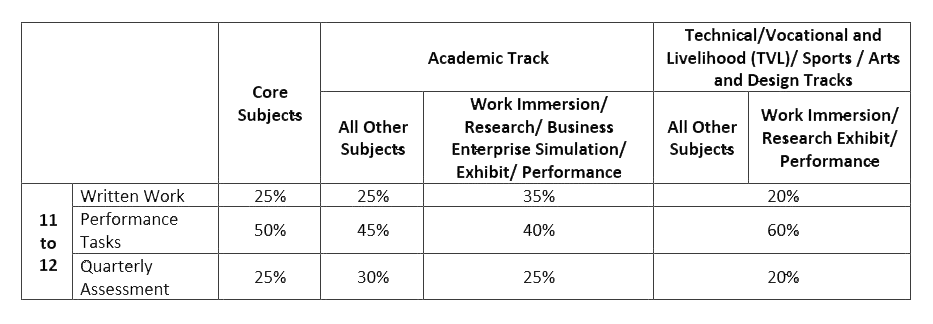
For Online Class
Organizational Structure
The Senior High school organizational structure is currently updating its content. It will be posted soon.
Faculty & Staff (Calapan Campus)
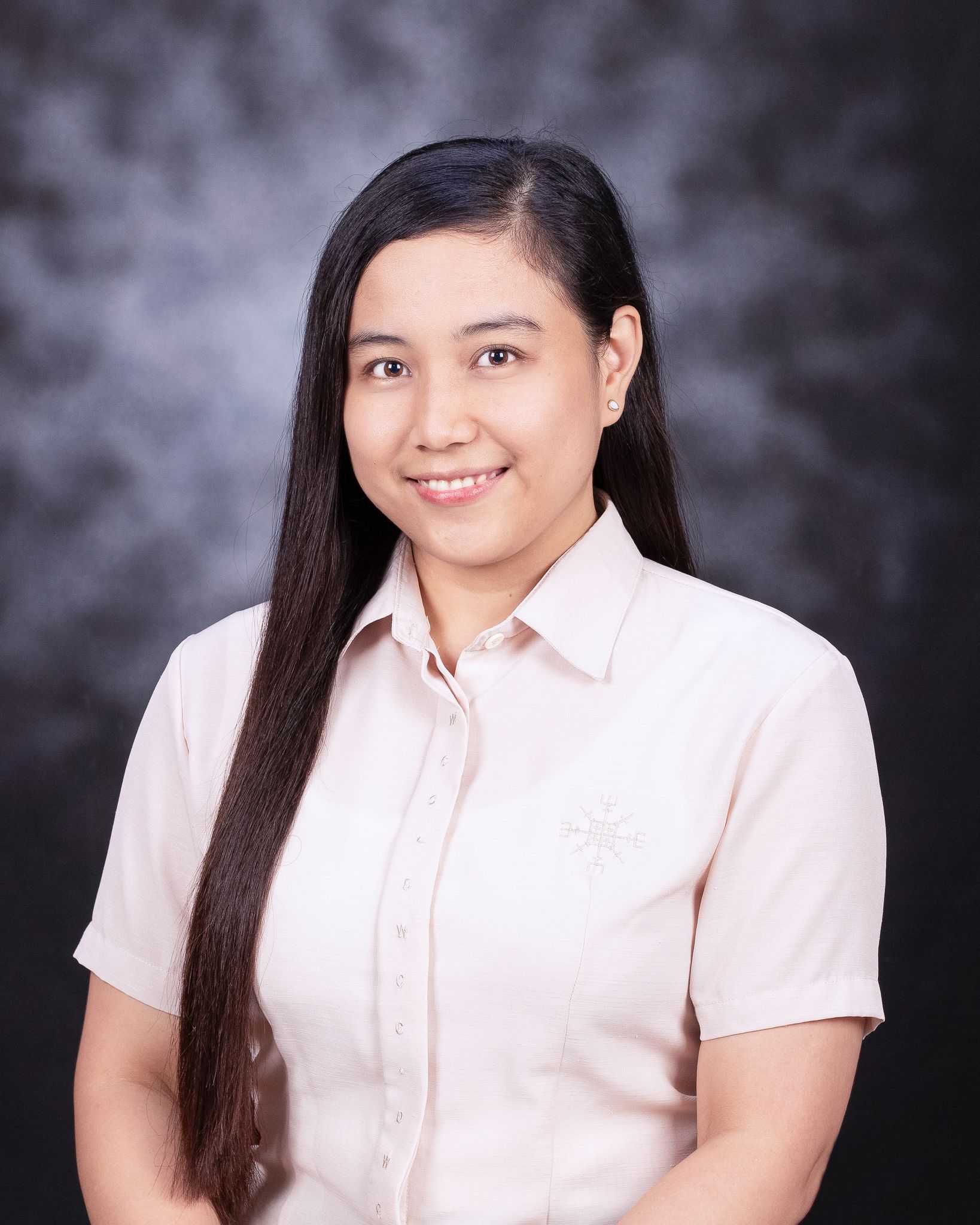
Ms. VERNADETH B. TORALBA, LPT
- Bachelor of Secondary Education major in Biological Sciences
- Master of Arts in Education major in Science Education (27 units)
- Academic Chairperson
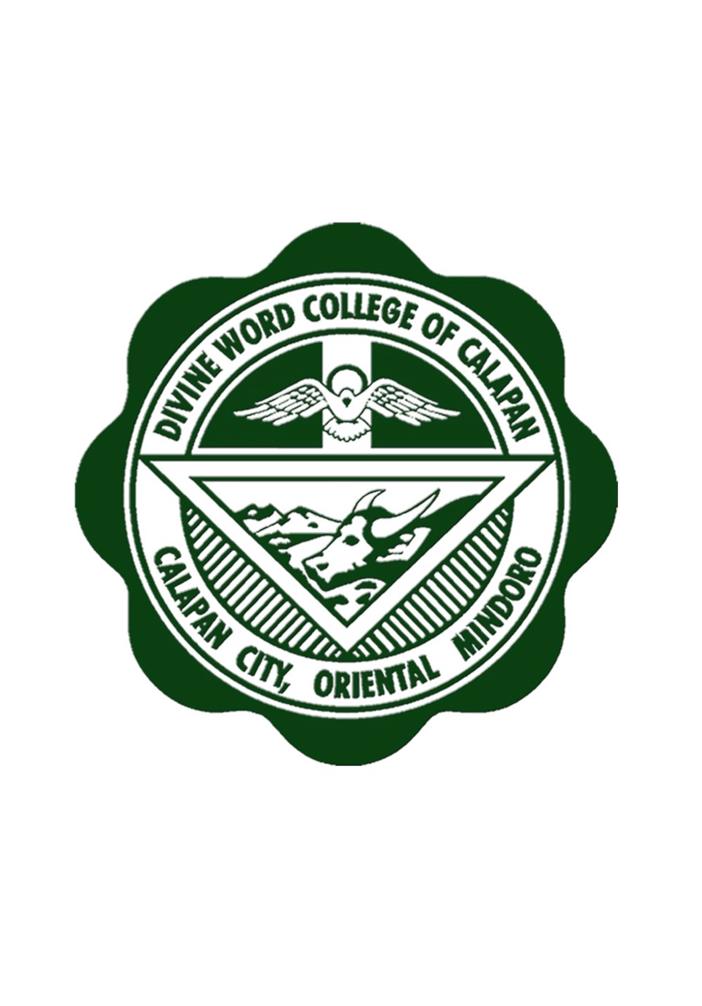
Mr. YHELMART U. ACABADO

Ms. PRECIOUS NIMFA E. ALIMOT, LPT
Grade 11 – STEM Adviser
- Bachelor of Secondary Education major in Mathematics

Mr. JOSHUA A. APOLONIO, LPT, Ph.D.
- Doctor of Philosophy in English Language Studies
- Master of Arts in English Language Studies
- Bachelor of Arts in English Language
- Research Coordinator

Mr. JHON AARON L. BABAO
- Bachelor of Arts in Philosophy
- Religious Education Teacher
- Page Manager
- Master of Arts in Education major in Social Sciences (9 units)
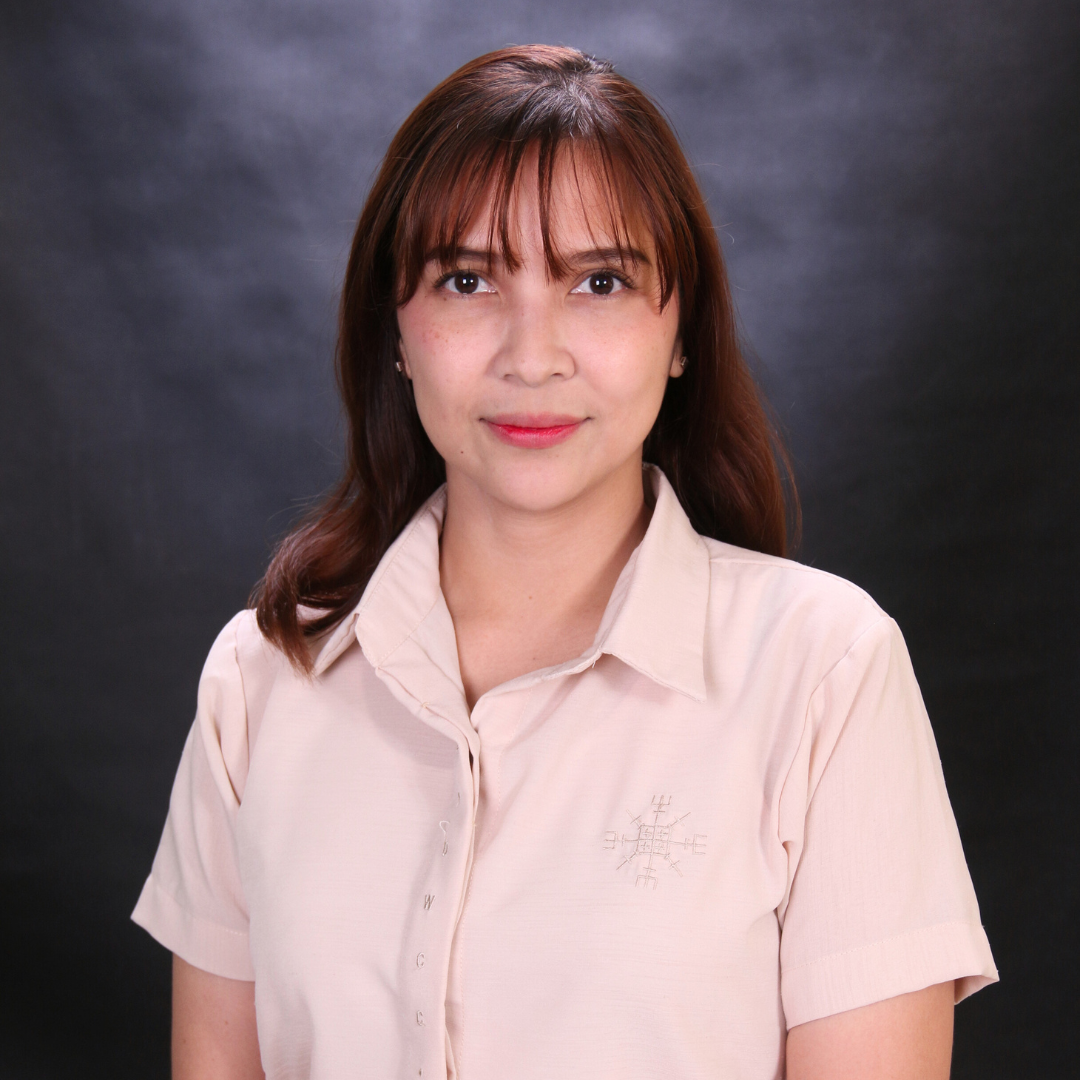
Ms. CRYSTENE JOY R. BUÑAG, LPT
Grade 12 – TVL Adviser
- Bachelor of Secondary Education major in MAPEH
- Subject Coordinator

Mr. JAY WINDEL A. CALALUAN, MA.Ed
Grade 12 – STEM Adviser
- Master of Arts in Education in Science Education
- Bachelor of Secondary Education major in Biological Sciences
- Pollution Control Officer
- Subject Coordinator

Ms. MARIE LIZ A. CARIAGA, MPA, LPT
Grade 12- ABM Adviser
- Bachelor of Science in Biology
- Master in Public Administration

Ms. DENNISE ANNE R. DAYAO, LPT
Grade 12 – STEM Adviser
- Bachelor of Secondary Education major in English
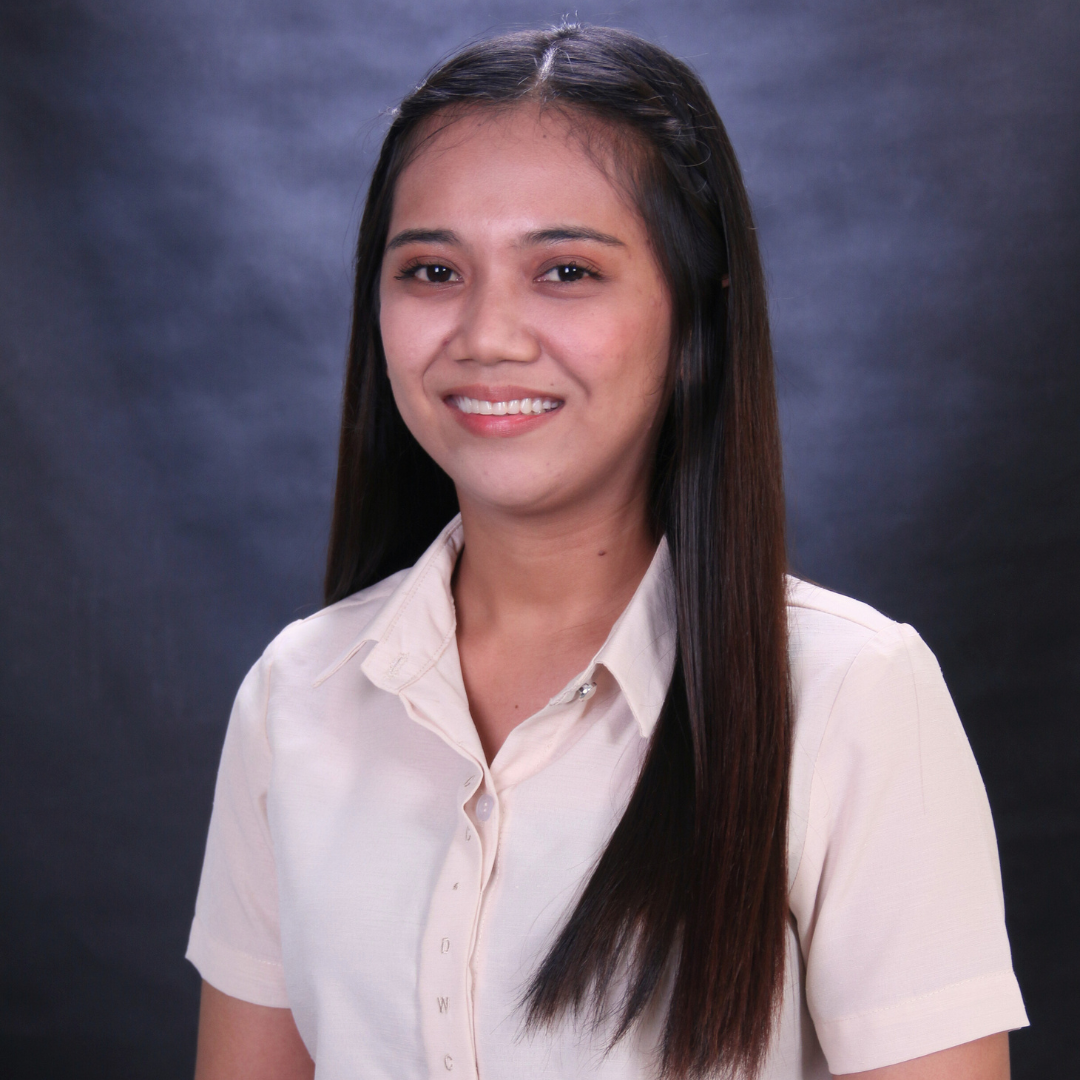
Ms. KYLA DIANNE D. GARIBAY, LPT
Grade 12 – STEM Adviser
- Bachelor of Secondary Education major in Mathematics

Ms. LAICA CAMILLE R. MACARAIG, LPT
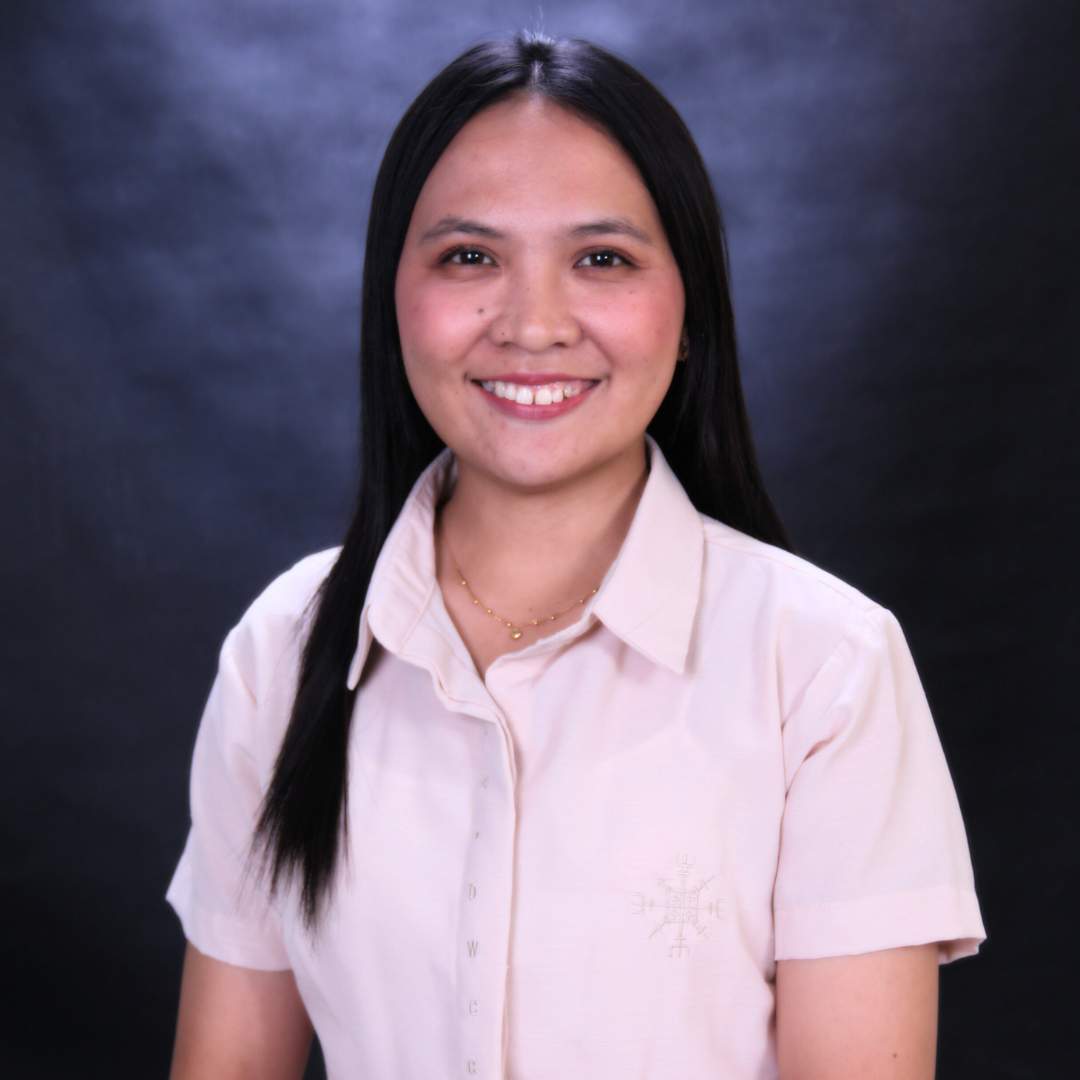
Ms. MERRY A. MARASIGAN, LPT
Grade 11 – STEM Adviser
- Bachelor of Secondary Education major in English
- Master of Arts in Education major in English Language Teaching (15 units)
- Student Council Adviser

Mr. RANZEL JHAY M. MARQUEZ, LPT
Grade 11 – TVL Adviser
- Bachelor of Secondary Education major in English
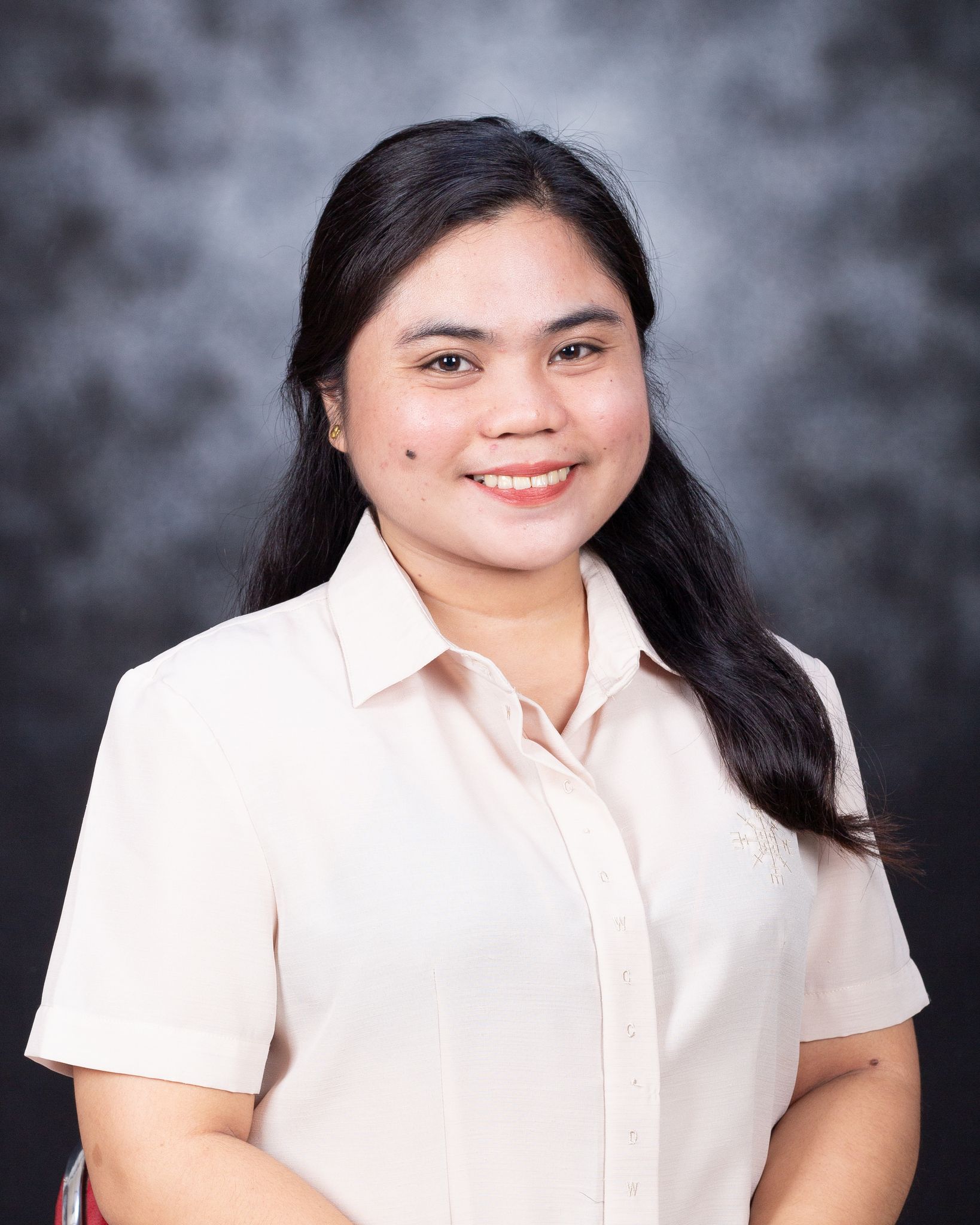
Ms. AIZEL I. MADRIGAL, LPT
- Bachelor of Secondary Education major in English
- Prefect of Discipline
- Subject Coordinator
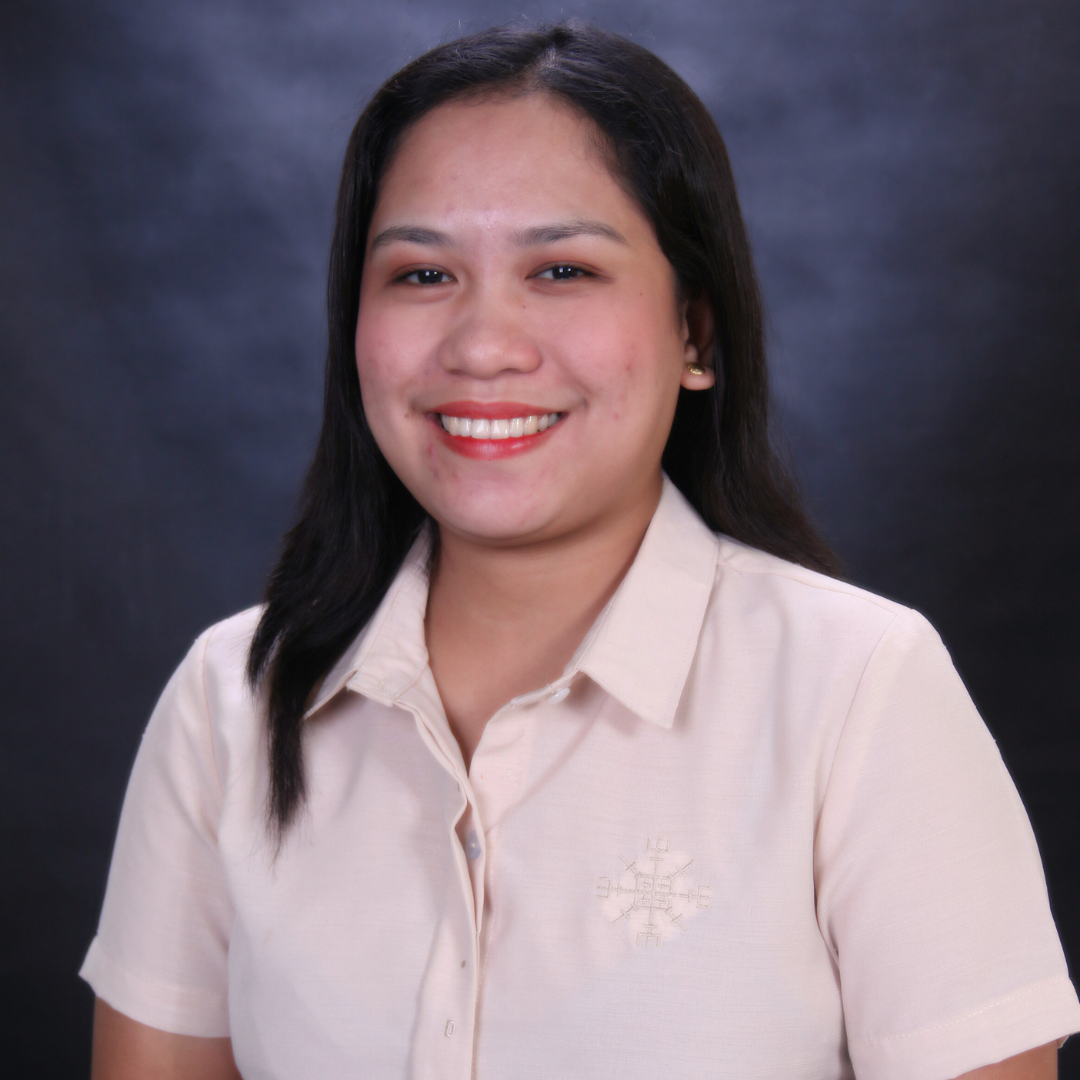
Ms. ARLENE T. MENORCA, LPT
Grade 11 – ABM Adviser
- Bachelor of Secondary Education major in Filipino
- Religious Education Teacher
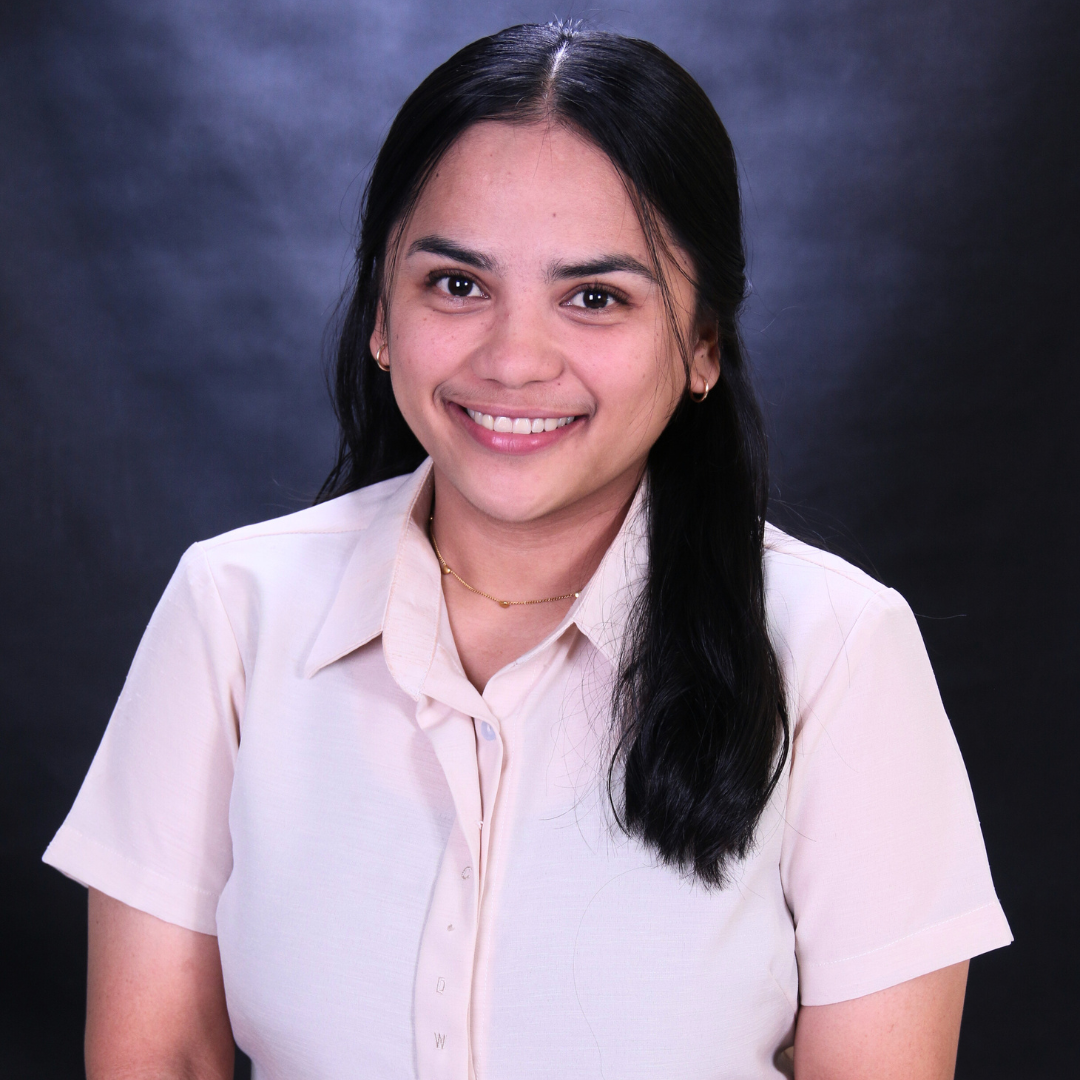
Mr. ANNE MARIELLE M. SAGUID, LPT
Grade 11 – STEM Adviser
- Bachelor of Physical Education
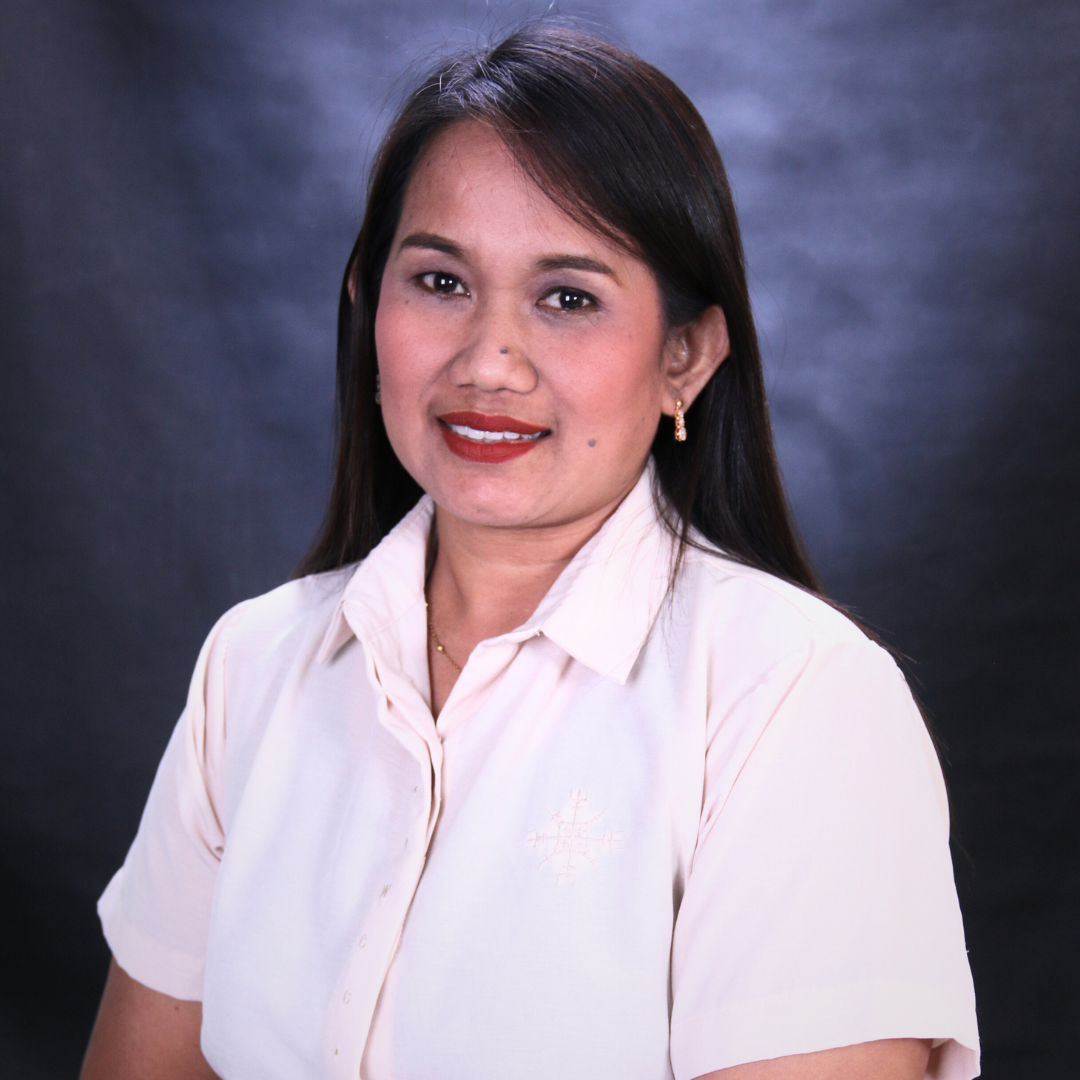
Ms. PAMELA P. SALANDANAN, LPT
Grade 12 – HUMSS Adviser
- Bachelor of Elementary Education major in Filipino
- Master of Arts in Education in Filipino (46 units)
Faculty & Staff (Pinamalayan Campus)
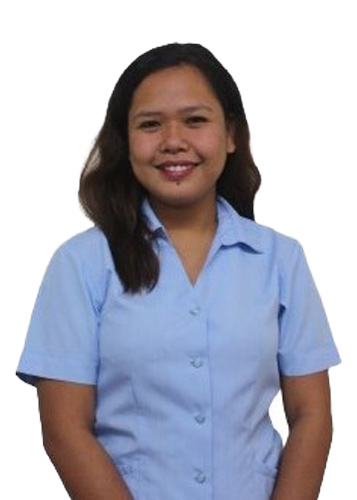
Ms. ELLAINE L. MASCARIÑAS
- Bachelor of Science in Business Administration major in Financial Management
- ABM Teacher
- Student Council Adviser
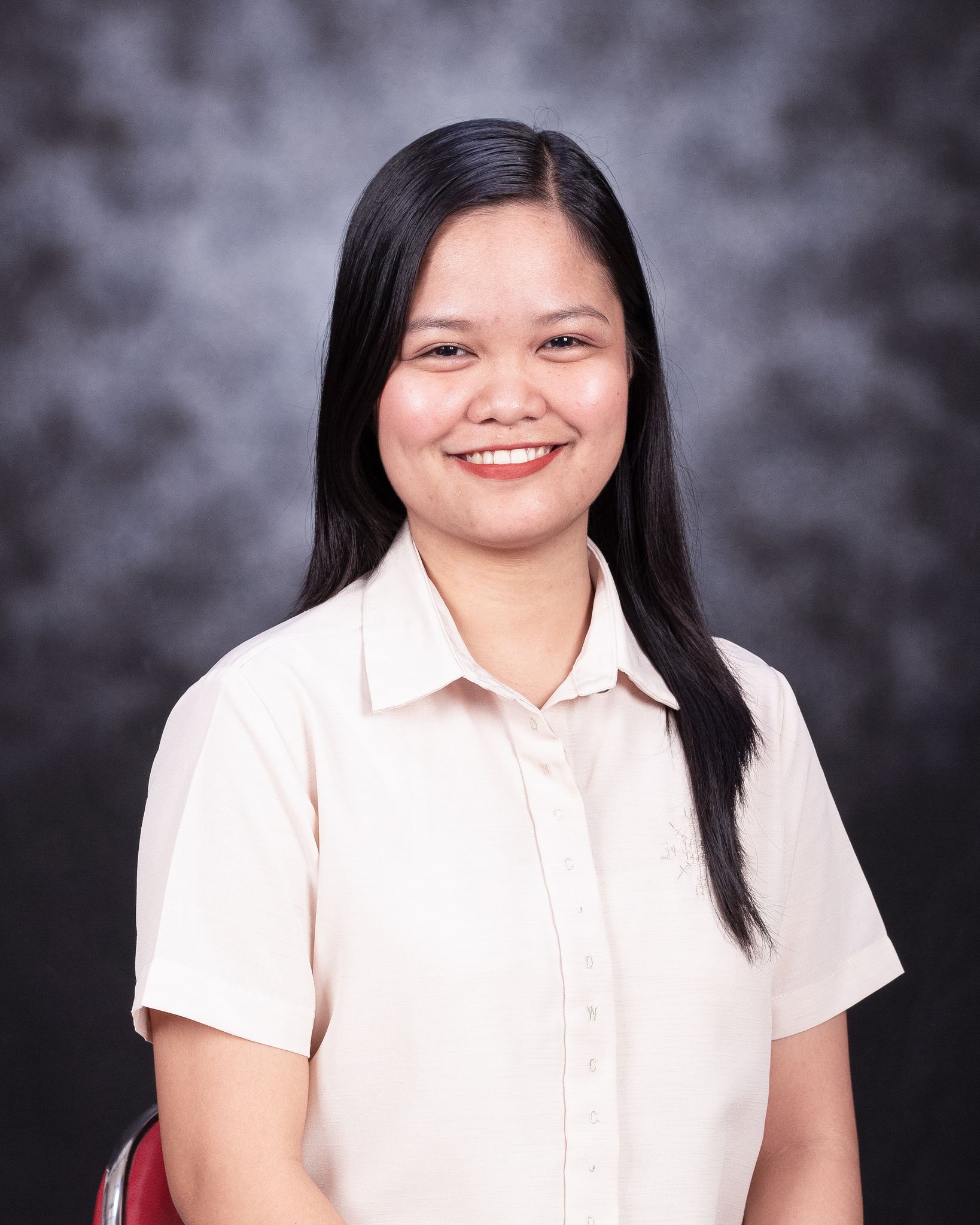
Ms. LEALYN M. POBLETE
- Bachelor of Secondary Education major in Mathematics
- Classroom Adviser, Mathematics Teacher
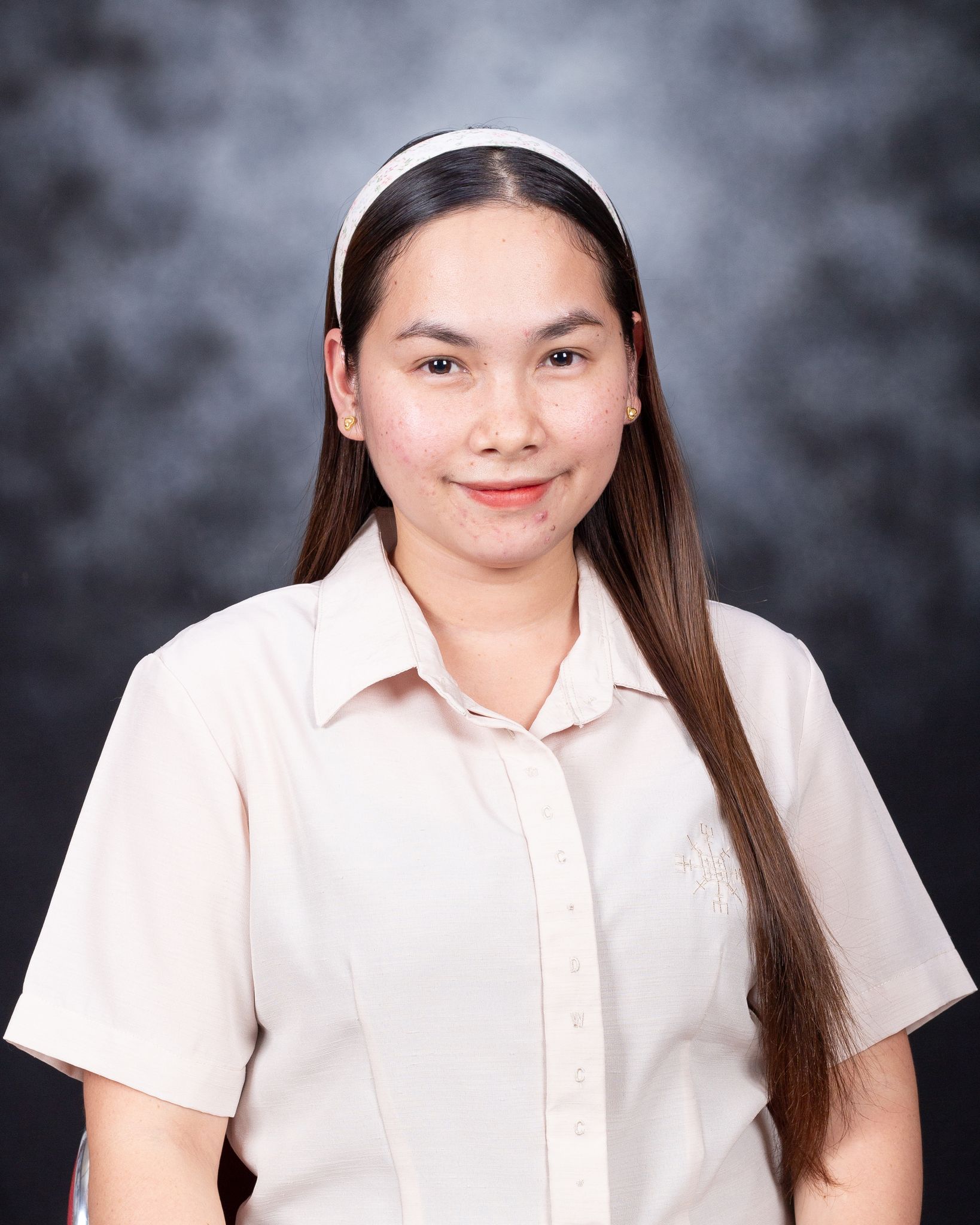
Ms. SARAH M. ROQUE
- Bachelor of Secondary Education major in Biological Science
- Classroom Adviser, Science Teacher
DWCC offers Senior High School programs in Freinademetz Campus and Pinamalayan Campus. Both campuses offers Accounting and Business Management (ABM) and Science, Technology, Engineering and Mathematics (STEM) strands. In Freinademetz campus also offers Technical-Vocational Livelihood (TVL) track.
I. Senior High School Core Curriculum Subjects
Core subjects are subjects that all SHS students will study regardless of their chosen career track or learning strand. You can think of this as similar to the general education (GE) subjects that college students usually take in their first or second year of college.
Subjects that form the core of the SHS curriculum include:
- Oral Communication in Context
The development of listening and speaking skills and strategies for effective communication in various situations.
- Reading and Writing
The development of reading and writing skills as applied to a wide range of materials other than poetry, fiction and drama.
- Komunikasyon at Pananaliksik sa Wika at Kulturang Pilipino
Pag-aaral tungo sa pananaliksik ukol sa kalikasan, katangian, pag-unlad, gamit at paggamit ng Wikang Filipino sa mga sitwasyong komunikatibo at kultural sa lipunang Pilipino.
- Pagbasa at Pagsusuri ng Iba’t-Ibang Teksto Tungo sa Pananaliksik
Pag-aaral sa proseso ng pagbasa at pagsusuri ng iba’t ibang anyo at uri ng teksto na nakatutulong sa pagbuo at pagsulat ng sistematikong pananaliksik.
- 21st Century Literature from the Philippines and the World
This course aims to engage students in appreciation and critical study of 21st Century Literature from the Philippines and the World encompassing their various dimensions, genres, elements, structures, contexts, and traditions.
- Contemporary Philippine Arts from the Regions
The subject covers various contemporary arts practices of the region where the school is located. It aims to provide students with an appreciation of a broad range of styles in the various disciplines with consideration on their elements and principles, and engage them to an integrative approach in studying arts. Through this subject, students will broaden and acquire the necessary creative tools that open opportunities in pursuing their individual career goals and aspirations.
- Media and Information Literacy
The course introduces the learners to basic understanding of media and information as channels of communication and tools for the development of individuals and societies. It also aims to develop students to be creative and critical thinkers as well as responsible users and competent producers of media and information.
- General Mathematics
At the end of the course, the students must know how to solve problems involving rational, exponential and logarithmic functions; to solve business-related problems; and to apply logic to real-life situations.
- Statistics and Probability
At the end of the course, the students must know how to find the mean and variance of a random variable, to apply sampling techniques and distributions, to estimate population mean and proportion, to perform hypothesis testing on population mean and proportion, and to perform correlation and regression analyses on real-life problems.
- Earth and Life Science
This learning area is designed to provide a general background for the understanding of Earth Science and Biology. It presents the history of the Earth through geologic time. It discusses the Earth’s structure, composition, and processes. Issues, concerns, and problems pertaining to natural hazards are also included. It also deals with the basic principles and processes in the study of biology. It covers life processes and interactions at the cellular, organism, population, and ecosystem levels.
- Physical Science
Evolution of our understanding of matter, motion, electricity, magnetism, light, and the universe from ancient times to the present; applications of physics and chemistry concepts in contexts such as atmospheric phenomena, cosmology, astronomy, vision, medical instrumentation, space technology, drugs, sources of energy, pollution and recycling, fitness and health, and cosmetics.
- Introduction to the Philosophy of the Human Person
Understanding the meaning and process of doing philosophy of the human person as an embodied being in the world and the environment as a means towards a holistic understanding of life.
- Physical Education and Health
Offers experiential learning for learners to adopt an active life for fitness and lifelong health. The knowledge, skills and understanding which include physical and health literacy competencies support them in accessing, synthesizing and evaluating information; making informed decisions; enhancing and advocating their own as well as others’ fitness and health.
- Personal Development
This course makes senior high school students aware of the developmental stage that they are in, for them to better understand themselves and the significant people around them as they make important career decisions as adolescents. The course consists of modules, each of which addresses a key concern in personal development. Using the experiential learning approach, each module invites students to explore specific themes in their development. Personal reflections, sharing, and lectures help reveal and articulate relevant concepts, theories, and tools in different areas in psychology.
- Understanding Culture, Society and Politics
This course uses insights from Anthropology, Political Science, and Sociology to develop students’ awareness of cultural, social and political dynamics, and sensitivity to cultural diversity; provide them with an understanding of how culture, human agency, society and politics work; and engage them in the examination of the country’s current human development goals.
- Earth Science (taken instead of Earth and Life Science for those in the STEM Strand)
This learning area is designed to provide a general background for the understanding of the Earth on a planetary scale. It presents the history of the Earth through geologic time. It discusses the Earth’s structure and composition, the processes that occur beneath and on the Earth’s surface, as well as issues, concerns, and problems pertaining to Earth’s resources.
- Disaster Readiness and Risk Reduction (taken instead of Physical Science for those in the STEM Strand)
This course focuses on the application of scientific knowledge and the solution of practical problems in a physical environment. It is designed to bridge the gap between theoretical science and daily living.
Applied / Contextualized subjects are subjects that all SHS students will take; however, contrary to core subjects which are only meant to cover the most basic of topics, applied subjects are designed to focus on the specific applications of certain subjects on the student’s chosen career track or learning strand.
For example, while all career tracks include a Filipino subject, Filipino as used in the field of arts and design and Filipino as used in the field of sports can have slight differences just like how research in the fields of humanities and social sciences is sometimes conducted differently in the fields of science and technology.
Applied subjects that you are going to study as part of the SHS curriculum include:
- English for Academic and Professional Purposes
The development of communication skills in English for academic and professional purposes
- Practical Research 1
This course develops critical thinking and problem-solving skills through qualitative research.
- Practical Research 2
This course develops critical thinking and problem-solving skills through quantitative research.
- Filipino sa Piling Larangan
Pagsulat ng iba’t ibang anyo ng sulating lilinang sa mga kakayahang magpahayag tungo sa mabisa, mapanuri, at masinop na pagsusulat sa piniling larangan.
- Empowerment Technologies
Information and communication technologies as a tool for curating, contextualizing, collaborating, and creating content and experiences for learning in the professional tracks.
- Entrepreneurship
This course deals with the concepts, underlying principles, processes and implementation of a business plan. The preliminaries of this course include the following:
-
-
- discussion on the relevance of the course;
- explanation of key concepts of common competencies;
- explanation of core competencies relative to the course;
- and exploration of career opportunities.
-
-
- Inquiries, Investigations and Immersions
This culminating activity develops critical thinking and problem solving skills through qualitative and quantitative research.
Specialized subjects are subjects that are unique to the career track or learning strand that the student chose. These are similar to the major subjects that college students take, although they’re designed to be less complex than their college counterparts.
Specialized subjects that belong to each career track and learning strand are listed below.
ACADEMIC TRACK
Accountancy, Business, and Management (ABM) Strand
-
- Applied Economics - This course deals with the basic principles of applied economics, and its application to contemporary economic issues facing the Filipino entrepreneur such as prices of commodities, minimum wage, rent, and taxes. It covers an analysis of industries for identification of potential business opportunities. The main output of the course is the preparation of a socioeconomic impact study of a business venture.
- Business Ethics and Social Responsibility - The course deals with the fundamental concepts, principles, and practices of ethical standards in the business environment. It combines the theoretical foundations of setting up business enterprises with the conduct of entrepreneurial activities in the context of one’s accountability and social responsibility.
- Fundamentals of Accountancy, Business and Management 1 - This is an introductory course in accounting, business, and management data analysis that will develop students’ appreciation of accounting as a language of business and an understanding of basic accounting concepts and principles that will help them analyze business transactions.
- Fundamentals of Accountancy, Business and Management 2 - The course deals with the preparation and analysis of financial statements of a service business and merchandising business using horizontal and vertical analyses and financial ratios. Knowledge and skills in the analysis of financial statements will aid the future entrepreneurs in making sound economic decisions.
- Business Mathematics - This course will provide an understanding of the basic concepts of mathematics as applied in business. It includes a review of the fundamental mathematics operations using decimals, fractions, percent, ratio and proportion; mathematics concepts and skills in buying and selling, computing gross and net earnings, overtime and business data presentation, analysis and interpretation. The use of computer and software applications for computation and data presentation is encouraged.
- Business Finance - This course deals with the fundamental principles, tools, and techniques of the financial operation involved in the management of business enterprises. It covers the basic framework and tools for financial analysis and financial planning and control, and introduces basic concepts and principles needed in making investment and financing decisions. Introduction to investments and personal finance are also covered in the course. Using the dual-learning approach of theory and application, each chapter and module engages the learners to explore all stages of the learning process from knowledge, analysis, evaluation, and application to preparation and development of financial plans and programs suited for a small business
- Organization and Management - This course is designed to familiarize the students with the basic concepts, principles, and processes related to business organization, and the functional areas of management. Particular emphasis will be given to the study of management functions like planning, organizing, leading, and controlling, and orient the students on the importance of these functions and the role of each area in entrepreneurship.
- Principles of Marketing - The course deals with the principles and practices in marketing goods and services. It also focuses on the development of integrated marketing programs that will help grow businesses.
Humanities and Social Sciences Strand (HUMSS)
-
- Creative Writing/ Malikhaing Pagsulat - The course aims to develop practical and creative skills in reading and writing; introduce students to the fundamental techniques of writing fiction, poetry, and drama; and discuss the use of such techniques by well-known authors in a variety of genres. Each class will be devoted to the examination of techniques and to the workshop of students’ drafts toward the enrichment of their manuscripts. Students learn how to combine inspiration and revision, and to develop a sense of form.
- Introduction to World Religions and Belief Systems - The course explores the main tenets and practices of major world religions: Judaism, Christianity, Islam, Hinduism, Theravada Buddhism, Mahayana Buddhism, Confucianism, Taoism and Shintoism. It aims to help learners understand the historical contexts of nine religions, appreciate their uniqueness and similarities and promote mutual understanding among believers of different faiths. They are expected to demonstrate understanding and appreciation of one’s faith and that of others.
- Creative Nonfiction - Focusing on formal elements and writing techniques, including autobiography and blogging, among others, the subject introduces the students to the reading and writing of Creative Nonfiction as a literary form. The subject develops in students skills in reading, and thinking critically and creatively, that will help them to be imaginative readers and writers.
- Trends, Networks, and Critical Thinking in the 21st Century Culture - The course provides opportunities for students to discover patterns and extract meanings from emerging trends. It aids in developing their critical and creative thinking skills-- essential tools for decision making and understanding “ethics of care”. Global trends in the 21st century are examined and are either accepted or rejected on a sound set of criteria. Students will be asked to create and analyze scenarios that will challenge them to formulate their stances on issues or concerns; propose interventions and; formulate alternative futures. The students will realize the interconnections between their neural connections and social realities.
- Philippine Politics and Governance - This course introduces the students to the basic concepts and vital elements of politics and governance from a historical-institutional perspective. In particular, it attempts to explain how the important features of our country’s political structures/institutions, processes, and relationships developed across time. In the process, the course helps the learners gain a better appreciation of their rights and responsibilities as individuals and as members of the larger sociopolitical community to strengthen their civic competence.
- Disciplines and Ideas in the Applied Social Sciences - This course introduces some Applied Social Sciences, namely, Counseling, Social Work, and Communication, which draw their foundation from the theories and principles of Psychology, Sociology, Anthropology, and other Social Sciences. The course highlights the seamless interconnectivity of the different applied social science disciplines while focusing on the processes and applications of these applied disciplines in critical development areas
- Disciplines and Ideas in the Social Sciences - The course introduces students to basic concepts, subjects, and methods of inquiry in the disciplines that comprise the Social Sciences. It then discusses influential thinkers and ideas in these disciplines, and relates these ideas to the Philippine setting and current global trends.
- Community Engagement, Solidarity, and Citizenship - This course focuses on the application of ideas and methods of the social sciences to understand, investigate, and examine challenges of contemporary community life. It focuses on community-action initiatives such as community engagement, solidarity, and citizenship as guided by the core values of human rights, social justice, empowerment and advocacy, gender equality, and participatory development. It aims at enhancing students’ sense of shared identity and willingness to contribute to the pursuit of the common good of the community. It enables students to integrate applied social sciences into community-action initiatives.
Science, Technology, Engineering and Mathematics (STEM) Strand
-
- Pre-Calculus - At the end of the course, the students must be able to apply concepts and solve problems involving conic sections, systems of nonlinear equations, series and mathematical induction, circular and trigonometric functions, trigonometric identities, and polar coordinate system.
- Basic Calculus - At the end of the course, the students must know how to determine the limit of a function, differentiate, and integrate algebraic, exponential, logarithmic, and trigonometric functions in one variable, and to formulate and solve problems involving continuity, extreme values, related rates, population models, and areas of plane regions.
- General Biology 1 - This subject is designed to enhance the understanding of the principles and concepts in the study of biology, particularly life processes at the cellular and molecular levels. It also covers the transformation of energy in organisms.
- General Biology 2 - This subject is designed to enhance the understanding of the principles and concepts in the study of biology, particularly heredity and variation, and the diversity of living organisms, their structure, function, and evolution.
- General Physics 1 - Mechanics of particles, rigid bodies, and fluids; waves; and heat and thermodynamics using the methods and concepts of algebra, geometry, trigonometry, graphical analysis, and basic calculus.
- General Physics 2 - Electricity and magnetism; optics; the basics of special relativity, atomic and nuclear phenomena using the methods and concepts of algebra, geometry, trigonometry, graphical analysis, and basic calculus.
- General Chemistry 1 and 2 - Composition, structure, and properties of matter; quantitative principles, kinetics, and energetics of transformations of matter; and fundamental concepts of organic chemistry.
TECHNICAL-VOCATIONAL LIVELIHOOD TRACK (in Freinademetz Campus only)
-
- Home Economics Strand
-
-
- Food and Beverage Services
- Bread and Pastry Production
- Housekeeping
- 7our Guiding Services
-
-
- Information and Communication Technology Strand
-
-
- Computer Programming
- Medical Transcription
- Animation
-
For Face-to-Face Class
 For Online Class
For Online Class

 For Online Class
For Online Class

The Senior High school organizational structure is currently updating its content. It will be posted soon.
Faculty & Staff (Calapan Campus)

Ms. VERNADETH B. TORALBA, LPT
- Bachelor of Secondary Education major in Biological Sciences
- Master of Arts in Education major in Science Education (27 units)
- Academic Chairperson

Mr. YHELMART U. ACABADO

Ms. PRECIOUS NIMFA E. ALIMOT, LPT
Grade 11 - STEM Adviser
- Bachelor of Secondary Education major in Mathematics

Mr. JOSHUA A. APOLONIO, LPT, Ph.D.
- Doctor of Philosophy in English Language Studies
- Master of Arts in English Language Studies
- Bachelor of Arts in English Language
- Research Coordinator

Mr. JHON AARON L. BABAO
- Bachelor of Arts in Philosophy
- Religious Education Teacher
- Page Manager
- Master of Arts in Education major in Social Sciences (9 units)

Ms. CRYSTENE JOY R. BUÑAG, LPT
Grade 12 - TVL Adviser
- Bachelor of Secondary Education major in MAPEH
- Subject Coordinator

Mr. JAY WINDEL A. CALALUAN, MA.Ed
Grade 12 - STEM Adviser
- Master of Arts in Education in Science Education
- Bachelor of Secondary Education major in Biological Sciences
- Pollution Control Officer
- Subject Coordinator

Ms. MARIE LIZ A. CARIAGA, MPA, LPT
Grade 12- ABM Adviser
- Bachelor of Science in Biology
- Master in Public Administration

Ms. DENNISE ANNE R. DAYAO, LPT
Grade 12 - STEM Adviser
- Bachelor of Secondary Education major in English

Ms. KYLA DIANNE D. GARIBAY, LPT
Grade 12 - STEM Adviser
- Bachelor of Secondary Education major in Mathematics

Ms. LAICA CAMILLE R. MACARAIG, LPT

Ms. MERRY A. MARASIGAN, LPT
Grade 11 - STEM Adviser
- Bachelor of Secondary Education major in English
- Master of Arts in Education major in English Language Teaching (15 units)
- Student Council Adviser

Mr. RANZEL JHAY M. MARQUEZ, LPT
Grade 11 - TVL Adviser
- Bachelor of Secondary Education major in English

Ms. AIZEL I. MADRIGAL, LPT
- Bachelor of Secondary Education major in English
- Prefect of Discipline
- Subject Coordinator

Ms. ARLENE T. MENORCA, LPT
Grade 11 - ABM Adviser
- Bachelor of Secondary Education major in Filipino
- Religious Education Teacher

Mr. ANNE MARIELLE M. SAGUID, LPT
Grade 11 - STEM Adviser
- Bachelor of Physical Education

Ms. PAMELA P. SALANDANAN, LPT
Grade 12 - HUMSS Adviser
- Bachelor of Elementary Education major in Filipino
- Master of Arts in Education in Filipino (46 units)
Faculty & Staff (Pinamalayan Campus)

Ms. ELLAINE L. MASCARIÑAS
- Bachelor of Science in Business Administration major in Financial Management
- ABM Teacher
- Student Council Adviser

Ms. LEALYN M. POBLETE
- Bachelor of Secondary Education major in Mathematics
- Classroom Adviser, Mathematics Teacher

Ms. SARAH M. ROQUE
- Bachelor of Secondary Education major in Biological Science
- Classroom Adviser, Science Teacher
